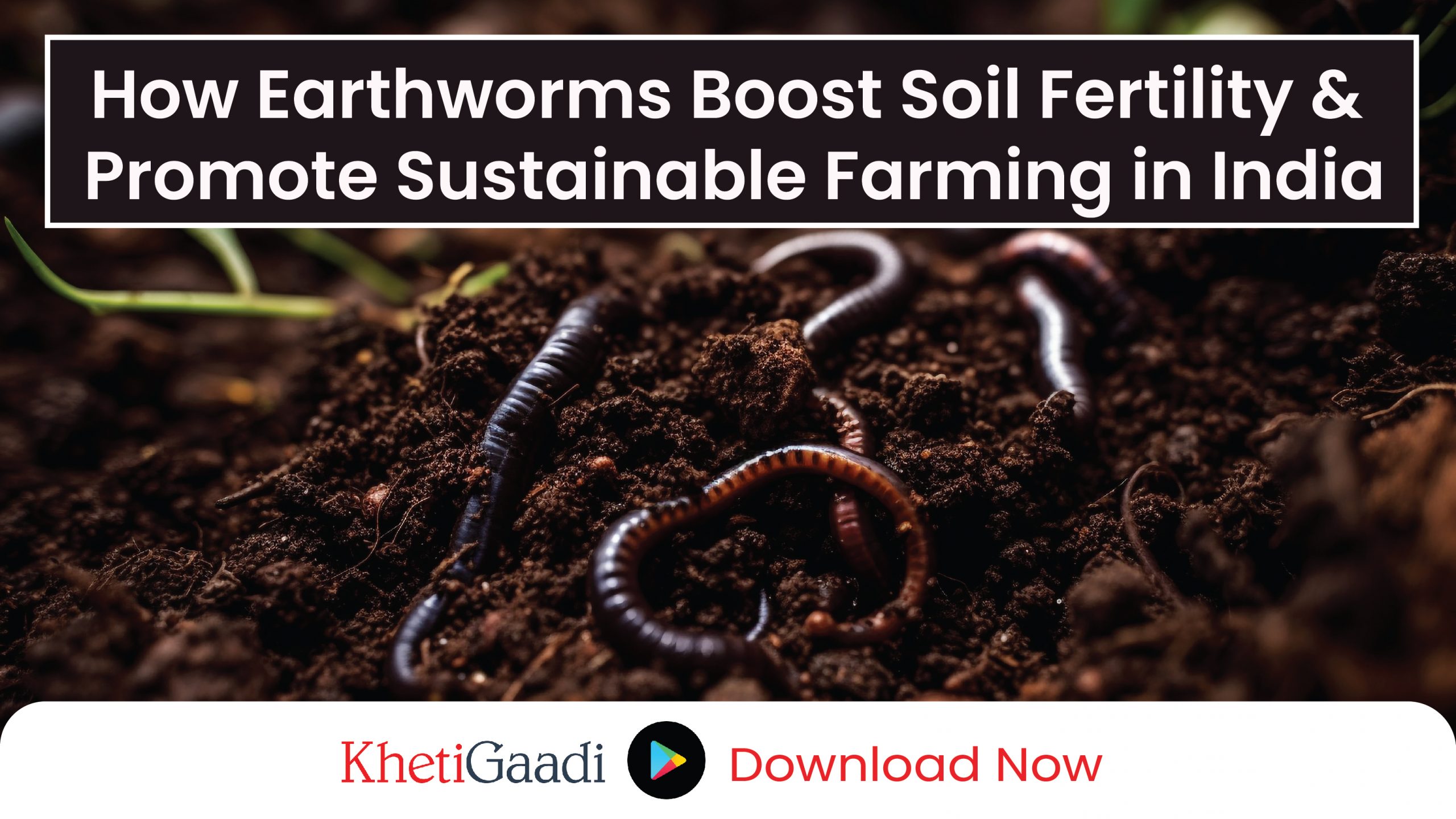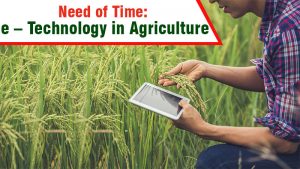Introduction
Earthworms, often overlooked, play a crucial role in agriculture. Their activities contribute significantly to soil health, fertility, and overall crop productivity. In India, where agriculture is a primary source of livelihood, leveraging earthworms can enhance farming practices sustainably. This blog delves into the essential functions of earthworms, their impact on soil improvement, the practice of vermiculture, and ongoing research that highlights their benefits for Indian farmers.
The Role of Earthworms as Essential Soil Organisms
Earthworms are vital soil organisms that contribute to a healthy and productive soil ecosystem. Known as “ecosystem engineers,” they enhance soil structure, fertility, and biological activity. Their presence is a positive indicator of soil health, which can significantly impact agricultural productivity.
Impact on Agriculture
- Soil Aeration and Structure:
- Earthworms burrow through the soil, creating channels that improve soil aeration and drainage. This activity helps roots access oxygen more efficiently and prevents waterlogging, which can damage crops.
- Organic Matter Decomposition:
- Earthworms consume organic matter such as dead leaves, plant roots, and manure, breaking it down into smaller particles. This process results in the formation of humus, which enriches the soil and improves its water-holding capacity.
- Nutrient Availability:
- By digesting organic matter, earthworms release essential nutrients like nitrogen, phosphorus, and potassium into the soil. These nutrients become more available to plants, enhancing their growth and yield.
Earthworm Activities in Soil Improvement
- Nutrient Cycling
Earthworms play a pivotal role in nutrient cycling by breaking down complex organic materials into simpler forms that plants can readily absorb. Their digestive process transforms organic matter into nutrient-rich castings, which are rich in essential nutrients and beneficial microbes. These castings improve soil fertility and provide plants with a steady supply of nutrients.
- Indicator of Soil Health
The presence of earthworms is often used as an indicator of soil health. Healthy soils typically have a robust earthworm population, which signifies good soil structure, adequate organic matter, and a balanced ecosystem. Conversely, a decline in earthworm numbers can indicate soil degradation, compaction, or pollution.
Earthworm Species and Their Functions
India hosts various earthworm species, each playing a unique role in soil ecology:
- Eisenia fetida (Red Wigglers):
- Commonly used in vermiculture, Eisenia fetida is known for its high efficiency in composting organic waste. These earthworms are ideal for vermicomposting systems and contribute significantly to soil enrichment.
- Lumbricus terrestris (Nightcrawlers):
- Lumbricus terrestris is a larger species that burrows deep into the soil, improving soil structure and aeration. This species is beneficial for large-scale agricultural fields and pastures.
- Apporectodea caliginosa (Gray Worm):
- Apporectodea caliginosa is found in various soil types and contributes to the decomposition of organic matter and nutrient cycling. Its burrowing activity enhances soil fertility and structure.
Earthworm Farming or Vermiculture
Vermiculture, or earthworm farming, is a sustainable method for enhancing soil fertility and promoting eco-friendly agriculture. This practice involves breeding earthworms and using their castings (vermicompost) to improve soil quality.
Benefits of Vermiculture
- Enhanced Soil Fertility:
- Vermicompost is a rich, nutrient-dense soil amendment that improves soil structure, increases water retention, and provides essential nutrients to plants. It is an excellent alternative to chemical fertilizers.
- Waste Management:
- Vermiculture helps in recycling organic waste such as kitchen scraps, agricultural residues, and manure. This reduces landfill waste and produces valuable compost for soil enrichment.
- Reduced Environmental Impact:
- By using vermicompost, farmers can reduce their dependence on chemical fertilizers, which can have harmful effects on the environment and human health.
Ongoing Research and Innovative Practices
Research on earthworms and their applications in agriculture is ongoing, with several innovative practices emerging:
- Biochar and Vermicomposting:
- Combining biochar (a form of charcoal) with vermicomposting has shown promising results in enhancing soil fertility and carbon sequestration. Studies suggest that this combination improves soil health and crop productivity more effectively than vermicomposting alone.
- Earthworms in Precision Agriculture:
- Researchers are exploring the use of earthworms in precision agriculture to optimize soil management. This includes monitoring earthworm populations as indicators for targeted soil treatments and management practices.
- Integrated Pest Management (IPM):
- Earthworms are being integrated into IPM strategies to enhance soil health and reduce the need for chemical pest control. Their burrowing activity can help control soil-borne pests and diseases.
Success Story 1:
Rajesh Sharma’s Vermiculture Venture in Uttar Pradesh
Background: Rajesh Sharma, a farmer from Uttar Pradesh, transitioned to vermiculture in 2019 after attending a training workshop on sustainable agriculture. He started with a modest investment of ₹50,000 to set up his vermicomposting unit.
The Venture: Rajesh utilized kitchen waste and agricultural residues to feed his earthworms. He implemented a well-structured vermicomposting system, producing high-quality compost. He applied this compost to his fields, which previously relied on chemical fertilizers.
Success: Within a year, Rajesh observed a significant improvement in soil fertility and crop yield. His maize and wheat production increased by 30%, and he reduced his fertilizer costs by 40%. The success of his vermiculture venture led him to expand his business, providing compost to neighbouring farmers.
Financial Overview:
- Total Revenue from Compost Sales: ₹1,00,000
- Total Expenses (Initial Investment and Maintenance): ₹60,000
- Net Profit: ₹40,000
Success Story 2:
Meera Patel’s Earthworm Farming Success in Gujarat
Background: Meera Patel, a farmer in Gujarat, began her earthworm farming venture in 2020 with a focus on producing high-quality vermicompost. She invested ₹1,00,000 in setting up the infrastructure and purchasing earthworms.
The Venture: Meera adopted innovative practices such as integrating biochar with vermicompost and using earthworms in precision agriculture. Her farm benefited from improved soil structure, better water retention, and enhanced nutrient availability.
Success: Meera’s crops, including tomatoes and peppers, showed remarkable growth, with a yield increase of 50%. Her practice of selling vermicompost and organic vegetables became a profitable business, and she gained recognition in her community for promoting sustainable farming practices.
Financial Overview:
- Total Revenue from Vermicompost and Vegetables: ₹3,00,000
- Total Expenses (Initial Investment and Operations): ₹1,50,000
- Net Profit: ₹1,50,000
Conclusion
Earthworms are invaluable allies in agriculture, offering a natural and sustainable approach to improving soil health and fertility. Their role in nutrient cycling, soil aeration, and organic matter decomposition cannot be overstated. Vermiculture provides a practical solution for enhancing soil quality and managing organic waste, contributing to eco-friendly farming practices.
Ongoing research and innovative practices further highlight the potential of earthworms in modern agriculture. By incorporating earthworms into farming systems, Indian farmers can achieve sustainable growth, reduce environmental impact, and enhance their productivity.
Explore the world of earthworms and their benefits, and consider incorporating these natural soil enhancers into your agricultural practices for a more fruitful and sustainable future.
Other Useful links:
Benefits of Earthworms in Soil
Research on Earthworms in Agriculture
Tags




